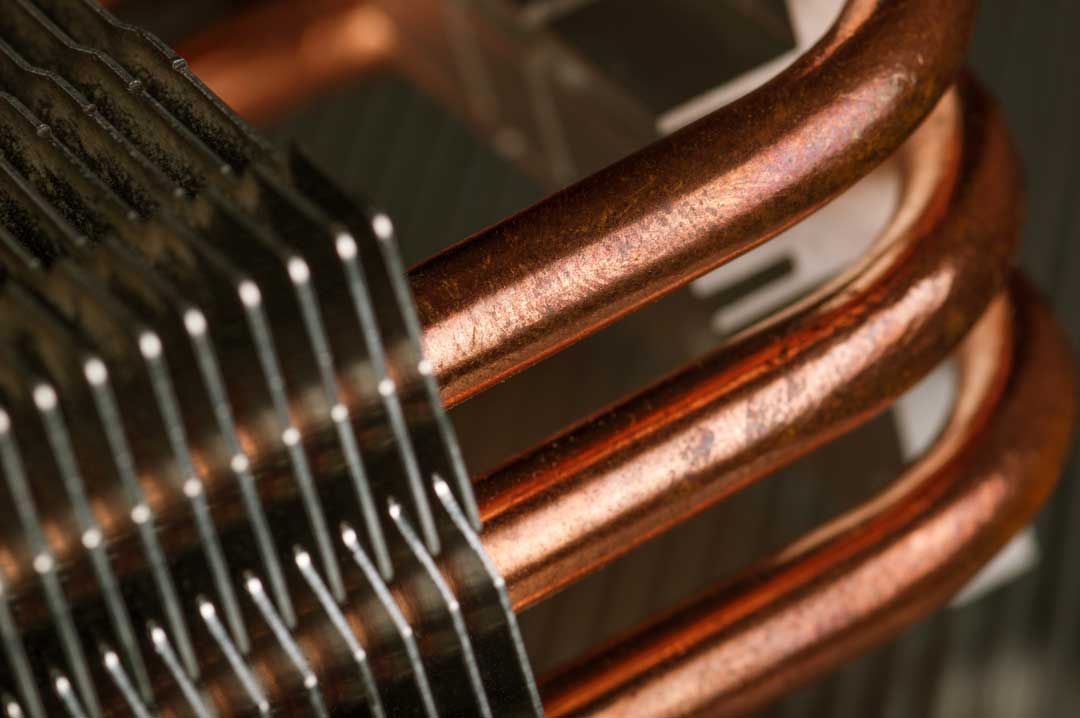Commercial Heating Systems Explained
It’s snowing outside, and you’re in your office keeping nice and warm. But with so many windows and large spaces, surely it’s difficult to keep a comfortable temperature. You’ve noticed that it’s colder in the spaces of your home that have large windows, so how does the office stay warm?
Commercial heating systems fill a different need than those in a home. Each commercial building has its own heating and cooling needs. A pharmaceutical laboratory may be subject to specific temperature requirements, while a general office may not.
How do facilities maintain proper heating with all of these challenges? This guide will help you understand how different types of commercial heating systems work.
Boiler Heating System
A commercial boiler system uses water to heat a space rather than air. People have used hot water to heat spaces for centuries. Modern technologies have made the heating process more efficient over the years. A fuel tank holds the heat source, usually oil or gas. The fuel is pumped into a burner and is burned in the combustion chamber. This reaction creates hot air, which heats water through conduction.
The water circulates through pipes to heat the building. It warms the heat radiators and then is pumped back into the boiler to start the process over again. The heating process generates carbon monoxide, which gets vented out of the building. The boiler system has many parts, including an aquastat which ensures the water stays between 160ºF and 180ºF degrees. Safety valves make sure the pressure of the system does not get too high.
Boilers provide an efficient commercial heating system, but there are some drawbacks to using one. Boilers require fuel in order to run, so you need to be mindful of fuel storage. Boiler heating systems have many parts, all of which must be adequately maintained. These include a low-water cutoff, electrical pumps, and expansion tank. Proper maintenance ensures that your system operates safely and efficiently.
Commercial HVAC Systems
Heating, Ventilation, and Air Conditioning (HVAC) systems are common in commercial buildings. An HVAC system controls humidity, temperature, and ventilation within a building.
Because HVAC systems maintain so much control over the indoor environment, it is a popular heating choice for hospitals, laboratories, and schools. Many other industries find that HVAC suits their needs best, especially if their products require specific environmental conditions.
There are three major types of HVAC systems. A centralized system is one unit that controls the environment in the entire building. These types of systems are typically large and complex, often occupying a zone of a building.
A packaged HVAC system is common in small spaces. The heat pump and air conditioner come in one unit, and a thermostat controls the system.
Individual systems, also called decentralized systems, operate through multiple units. The units are spread out over the building and are easy to control. Air conditioning units for a specific room are an example of a unit in a decentralized HVAC system.
While HVAC systems may provide the best heating option for some facilities, they are complex systems that require proper maintenance. An unexpected increase in your energy bill may be the first sign that something is wrong with your HVAC system. If you notice an increase in energy consumption, you should have the system inspected.
Another indicator of a problem with a commercial HVAC is an unpleasant odor. A good cleaning may solve the smell problem. But a foul smell may also indicate a more serious problem.
A more obvious sign of a problem with HVAC is difficulty with controlling temperature. If one room is too cold or one is too hot, there might be a problem with your system. If you suspect any problems with your system, have them checked out right away.
Air Source Heat Pumps
Air source heat pumps operate like a refrigerator. They absorb heat from the outside air and transfer it to the inside of a building. These types of systems are usually installed on the exterior of a building.
Heat pumps function as air to air heat or air to water heat pumps. Air to air heat pumps transfer the outside heat to indoors through a fan system. Air to water heat transfers the heat through a central heating system in a building.
When it comes to usage, air to air heat systems are mainly used to heat a space, whereas air to water heat systems can provide radiator heating, underfloor heating, or hot water heating.
Also, air source heat pumps are environmentally friendly. Because they use the air already outside the building, the heating system requires less energy and produces lower carbon emissions. Air source heat is an efficient heating system and can also be used to cool a building. These systems are low maintenance and last for a long time. There is no need to have fuel storage with an air source system.
One drawback to this type of system is that efficiency decreases when the temperature drops below 32ºF. Although advances are being made in air source technology for cold climates, consider where you’re located if you’re thinking about this heating option.
It is also more expensive to install underfloor heating. This system also has a lower heat supply than a boiler. This means you will need a larger heat radiator to get the same amount of heating as a boiler.
Your building must already be well insulated in order to get maximum efficiency with an air source heat system. If heat escapes through the walls and windows of your building, it will take more energy to heat it.
Explaining Commercial Heating Systems to Property Managers
Commercial HVAC systems require maintenance, repair, and know-how that matches their size and output. An HVAC technician who services home HVAC units will have basic knowledge necessary for commercial work, but there are some aspects of the job that require additional, specific training for commercial heating system purposes.
How Commercial HVAC Systems Differ From Home HVAC
Some of the ways in which a commercial heating and cooling system differs from a residential system might include:
Size: Commercial heating systems are generally physically larger than residential systems. Even for small businesses, if the size of the unit is comparable to a home HVAC, the output could be much more. A business could require more from its HVAC because of the square footage of its building, the type of business, how many employees need to be comfortable, among other reasons. The size of the entire HVAC system needs to be adequate for the size for the building it is heating and cooling.
Drainage: The amount of drainage that comes from a commercial HVAC system is usually many times more than what comes from a residential HVAC. A commercial system requires a more complex system to drain condensate due to serving a much larger area. An HVAC system for a hospital is on 24 hours a day and must provide clean warm or cool air to everyone inside the walls of the hospital. This can cause hundreds of gallons of liquid as opposed to what accumulates from an HVAC system in a small home that only uses the heater or A/C part of the year.
Placement: Since commercial HVAC systems are generally used for larger areas than even a large home, it’s not suitable to place the equipment in the parking lot or behind the building. Most commercial heating and cooling equipment is placed on the roof of the business. This allows for room to spread out the various pipes and other machine parts while keeping it out of the way. When it’s time for a maintenance visit, the specially trained commercial HVAC technicians know where to find the system and how to perform the necessary job.
Most Frequent Problem With Commercial Heating Systems
One of the most common problems that occurs with commercial heating systems is not unlike those facing a home HVAC system – it doesn’t blow the prescribed cool or warm air. That is often a relatively simple fix and can sometimes be caught during a regularly scheduled maintenance.
Maintenance Scheduling for a Commercial HVAC System
Maintaining any HVAC system will help save money in the long run whether for repairs or for replacing parts that have broken or are wearing out. Your commercial HVAC might seem to need more frequent maintenance than your home HVAC, but sometimes it depends on the business where the HVAC is located. A 50-story hotel has could have thousands of people who need to be comfortable during their stays and safe in the event that weather calls for heat or air conditioning. It’s not quite as simple (not to downplay loss of heat and air in a home) as turning on a fan on a sweltering day or throwing on another blanket when it gets chilly. It is imperative that the commercial HVAC system is always in good working order.
Our team at Industrial Mechanical Contractors, Inc., is here for you to help with all of your commercial heating system needs. Contact IMC today to talk to one of our experts.






